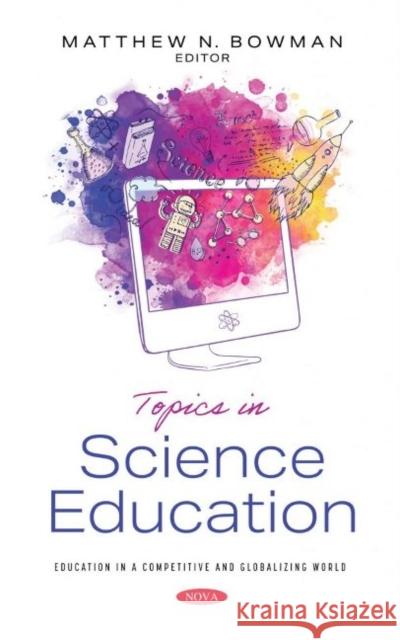Topics in Science Education » książka
Topics in Science Education
ISBN-13: 9781536197693
Science education represents one of the most fundamental components of any well-designed public education program, as teaching science helps students understand critical thinking skills and evidence-based reasoning. However, the field of science education is not without its controversies, as the multifaceted and complex nature of science leads to differences of opinion on the merits of various teaching modalities. Chapter One of this book explains the tension that exists between individual learning styles, which can vary significantly among students, and the need to offer practical guidance to science teachers, who generally plan their curricula on a class/course basis. Chapter Two describes the lack of consensus on the meaning of STEM or STEAM education among educators and attempts to resolve this ambiguity by clearly defining the characteristics and objectives of STEM education. Chapter Three presents a study that includes a design and implementation of playful science projects in the elementary classroom that facilitate the learning of STEM concepts in formal contexts and promote positive emotions in students. Chapter Four discusses the tendency for teachers to experience negative emotions when conducting STEM education as well as the impact of a teacher's emotional state on student outcomes. Chapter Five explores the logical basis of Einstein's theory of general relativity and its meaning as derived by Einstein's inquiry process. Finally, Chapter Six expresses the importance of teaching science through inquiry by presenting a case study of a simple inquiry-based activity in a public senior high school in Japan.











